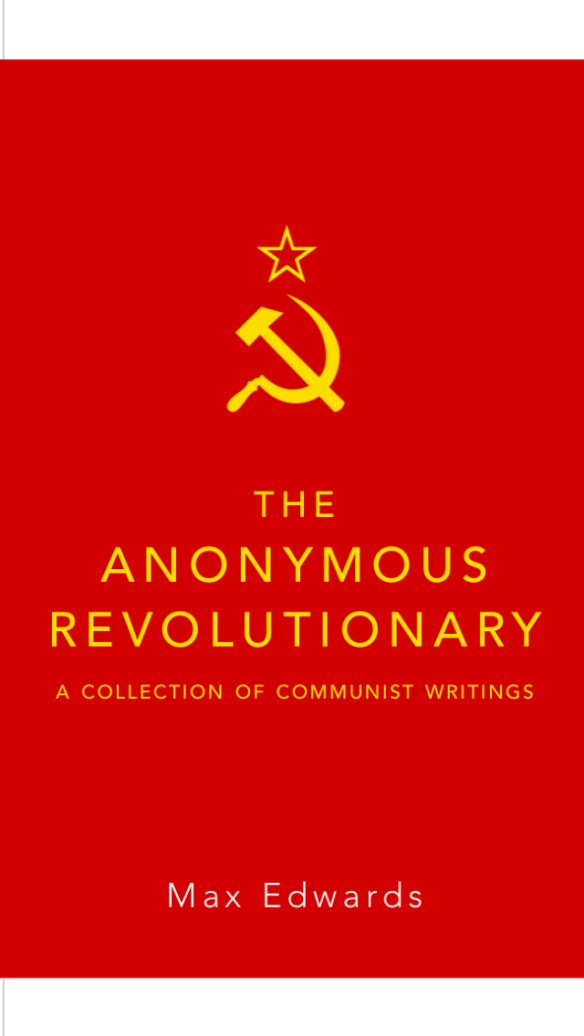In a Marxist context, ‘true’ communism is viewed as the final stage of society, where class, profit, government and nationality have all been swept away. By this time, according to the theory, mankind will have evolved beyond hierarchical organisation and will live collectively, meaning that the Soviet Union, China, or any other communist regime does not qualify.
Rather, the socialist countries of the twentieth century belong in the ‘lower’ stage of communism, theorised as a period of transitional socialism whilst some remnants of capitalism remain. Thus, a government exists, albeit a socialist one (a ‘Dictatorship of the Proletariat’), and a socialist economy is in place, rather than a fully communist one. This, although poorly, is how the People’s Republic of China attempts to justify their market economy.
“…between capitalist and communist society lies the period of the revolutionary transformation of the one into the other. There corresponds to this also a political transition period in which the State can be nothing but the revolutionary dictatorship of the proletariat’ – Karl Marx, Critique of the Gotha Program
Yet it is perhaps because these countries don’t represent the idea (meaning that there are no examples at hand) that ‘true’ communism is rarely discussed. It is often passed off as ‘the communist’s ideal’ or the theoretical utopia which Marxism, as a philosophy, has to offer. This means that the endgame of the international Marxist movement is often only spoken of in contrast to what is seen as communism’s harsh reality, yet few understand that this ideal occupies a hypothetical epoch of its own, one later in time than the stage of development occupied by, say, the USSR. Thus, the theoretical idea is compatible with the practical reality; it is simply a future vision of the modern socialist states.
Nonetheless, the system is often seen as unpractical, because it doesn’t only mean an economic transition, but a complete turnaround in social thought (though if you read my post Naturally Selfish: Does Human Nature Make Socialism Impossible? you’ll see why I think this is possible). Such change is required because the idea it’s centred upon is a communal and essentially anarchistic lifestyle in the modern era; a 21st century attempt at what primitive tribal societies managed centuries ago.
This is by no means an easy feat, and, in theory, can only be done once capitalism has been overthrown worldwide. This presents the first problem: every nation on the planet must no longer exist, meaning that humanity must have not only waged a global war against all existing authorities, but made the collective decision to unify. Therefore, nationalism, even patriotism, must fade into the past. If not, mankind won’t have crossed the first hurdle.
Another problem is that of money, for it underpins every modern economic system, even socialism, and a truly communist society should exist in its absence. This would mean that a method of distributing goods and essential items among the population must be set in place, so that citizens literally work for their bread, and no-one can accumulate excessive capital. The issue becomes more complex, however, when you take into account cars, musical instruments, and various other items of leisure that people may desire.
One way of solving this dilemma would be to allow every person an equal amount of luxury items, giving them the choice of several. This way, everyone would be able to pursue activities they enjoyed, but nobody could accumulate excessively. A difficulty with this method is the fact that it would require some kind of central planning, which is likely a lot less easy in a stateless society, but this could be managed if the political system was structured well.
A final problem, however, is the fact that it’s not only the monetary system that needs to be changed, but the profit-driven mindset of both blue and white-collar workers. In Cuba, certain trained professionals are apparently finding work behind the bar, because it’s easier to earn money that way. To avoid such a tendency, we must change public attitudes towards money, so that, when students train in any professional field of their choosing (none of which offer any special material reward) they do so purely because of their interest in the discipline.
The USSR believed it would reach ‘true’ communism by 1980, yet was proven wrong. China, sixty-seven years after the revolution, still asserts that it’s at the beginning of the road to equality (as if it was ever on it in the first place). This is very much a final conclusion, and will certainly not be achieved with ease. Yet the communist project is not a simple, and often not a glamorous one, but one both inevitable and necessary. In the words of Fidel Castro, ‘A revolution is not a bed of roses. A revolution is a struggle between the future and the past’.
If we applied this reasoning, reaching a completely equal society in the relatively near future may not be beyond our grasp.





